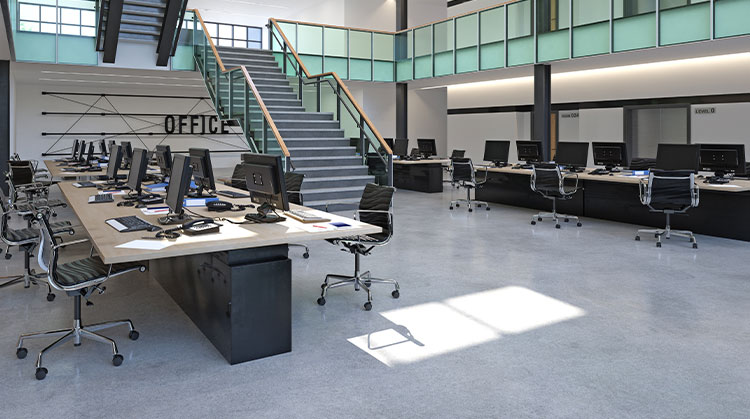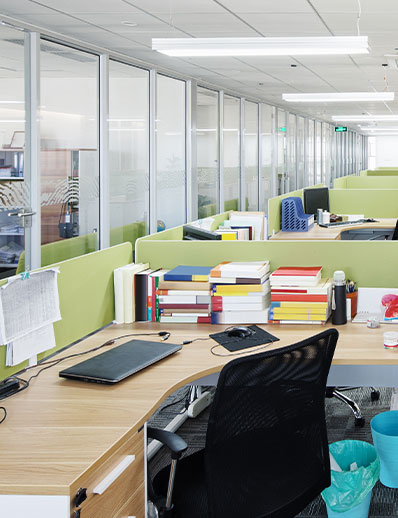Needless to say, the COVID pandemic threw us all for a loop. Employers, in particular, had to rapidly adapt to changing workplace realities, navigating a world in which team members couldn’t readily gather in shared spaces. While many companies pushed a strong “return to work” effort last year, in many ways we’re still dealing with the lingering effects of the pandemic and its various disruptions to business-as-usual.
One of the most significant innovations of the return-to-work effort was the hoteling model. The pandemic made it clear that many employees can work from anywhere in the world and remain productive, which has caused many employers to rethink the necessity of permanent, dedicated workspaces.
Instead, many employers have adapted hot desking and hoteling, creating open layouts where team members can reserve the desk space they need, when they need it. Basically, with the hoteling model, employees place a reservation in advance, then check in with a central concierge when they’re ready to “check in” to their work area… not unlike checking into a traditional hotel.
Hoteling was widely adopted during the initial return-to-work push and remains in wide use today. It’s worth pausing to assess the lessons learned from the hoteling movement. Specifically, what are the strengths of the hoteling model? And have teams encountered any significant limitations?
What Hoteling Gets Right
Space Savings (and Cost Savings)
Office real estate is expensive, and providing dedicated space to every single employee can get pricey quick. This is true for companies of all sizes. Hoteling provides a way for businesses to cut back on their office real estate while still ensuring that employees who need a place to work can find it.


Networking and Collaboration
In the old days, an employee might have spent much of their day isolated in a cubicle, making small talk only with the employees in nearby spaces. The hoteling model creates a much freer office atmosphere, cultivating a space where employees mix and mingle much more freely. This can yield significant benefits when it comes to networking and collaboration, reducing workplace silos.
Smarter Resource Allocation
Hoteling has also created an environment in which resources like stationery and printer paper can be more easily shared between the employees who need them, allowing employers to make a more judicious use of their office supply budgets.
Employee Engagement
Finally, hoteling can have a positive effect on employee engagement. Not only do employees appreciate the flexibility of the hoteling model, but they also intuit that their managers trust them to work productively no matter the environment. This trust and autonomy can have a pronounced, positive effect on job satisfaction.


Hoteling Downsides?
There are clearly some positive effects of hoteling, but what about downsides? Over the past year, some employers have noted a few challenges:
- Some employees prefer the stability of knowing exactly where they are going to work each day; hoteling may risk disruption and confusion.
- Using a different work space each day makes it impossible for employees to maintain personalized work areas (save for in their home office, of course).
- Sanitation can also be a concern, though this can be addressed with the right workspace cleaning team.
Want to Learn More about Hoteling or Alternative Hybrid Work Models?
Our experienced team can help guide you through how to use your office space more efficiently. Get your free consultation today!
Learn MoreIs Hoteling the Future of Work?
Roughly one year into the grand hoteling experiment, it’s reasonable to think this trend is here to stay. While it may not be the right fit for every business, its benefits are just too numerous to deny, and many companies have found hoteling to be effective. As you think strategically about how to use your office space, make sure you consult with a team of experts. Reach out to Corovan with any questions about how to make hoteling work for your business.
